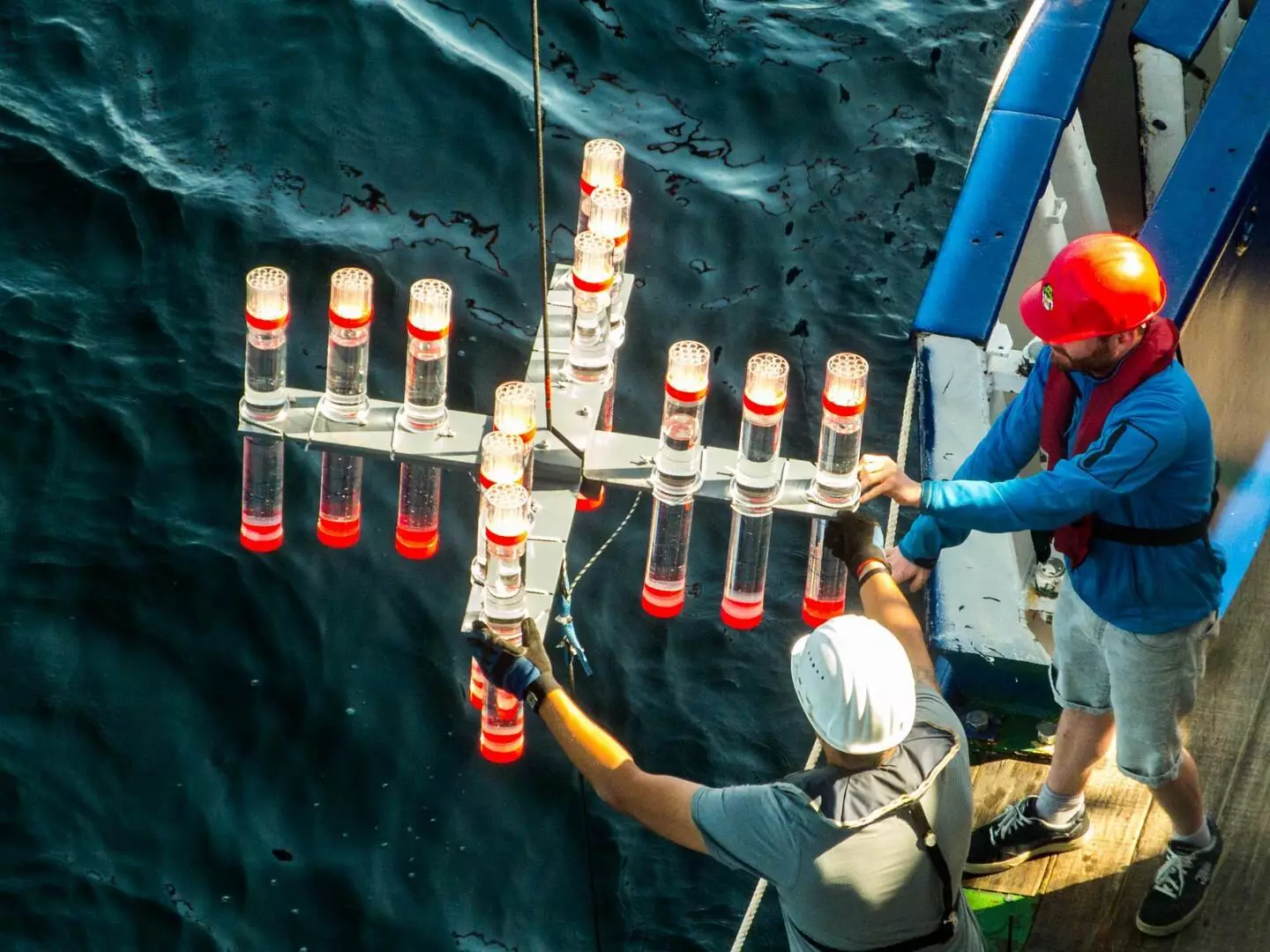Marine ecosystems have a critical role in the global carbon cycle. Phytoplankton, for instance, sequester carbon dioxide from the atmosphere through photosynthesis and store it in organic matter that sinks to the deep ocean, contributing to the long-term storage of carbon. Traditionally, it has been believed that this process, known as the biological carbon pump, is most efficient in areas with low oxygen levels. However, a recent study by researchers at the GEOMAR Helmholtz Center for Ocean Research Kiel challenges this assumption by highlighting the underestimated influence of certain zooplankton species on the biological carbon pump.
The biological carbon pump is a crucial mechanism for removing carbon dioxide from the atmosphere and mitigating climate change. It involves the sinking of organic particles from sunlit surface waters to the deep ocean. In areas with an oxygen minimum zone (OMZ), it was previously believed that the biological carbon pump operated at its greatest efficiency. The lack of oxygen in these zones was thought to limit the ability of zooplankton, which consume sinking particles, to reduce the export of carbon to the deep sea.
The researchers from the GEOMAR Helmholtz Center for Ocean Research Kiel conducted a study using the tropical upwelling system off the coast of Peru as a case study. They aimed to investigate the influence of zooplankton species on the efficiency of the biological carbon pump in these areas. The team collected samples in the Humboldt Current during two expeditions in April and June 2017. They deployed drifting sediment traps multiple times and used vertical multi-net hauls and an Underwater Vision Profiler (UVP5) to obtain high-resolution data on zooplankton species distribution.
Contrary to the prevailing assumption, the study revealed that zooplankton species that are tolerant of oxygen deficiency play a significant role in the biological carbon pump even in low-oxygen systems. These species consume sinking particles, reducing the export of carbon to the deep sea. The researchers found consistent evidence of this interaction between zooplankton and sinking particles through multiple independent methods. It was also observed that zooplankton species adapted to low-oxygen conditions actively avoid recently developed low-oxygen zones caused by eutrophication.
Dr. Anja Engel, the corresponding author of the study and Professor of Biological Oceanography, emphasizes the pivotal role of zooplankton in regulating the carbon pump. The findings challenge the assumption of a uniformly efficient biological carbon pump in oxygen minimum zones. Instead, the study highlights the importance of considering zooplankton dynamics in understanding and predicting carbon cycling in marine ecosystems. It calls for increased observations and knowledge of deep-sea ecosystems to improve our understanding of the marine carbon cycle and enable more accurate predictions.
The study’s findings shed new light on the role of zooplankton in the biological carbon pump, challenging previous assumptions about the efficiency of the process in low-oxygen zones. Zooplankton species that are tolerant of oxygen deficiency actively participate in the carbon cycling process, reducing the export of carbon to the deep sea. This research underscores the need for further investigation and monitoring of deep-sea ecosystems to enhance our understanding of the marine carbon cycle and improve predictions regarding climate change. By acknowledging the significant impact of zooplankton, we can develop more effective strategies for mitigating the effects of rising atmospheric carbon dioxide levels.


Leave a Reply